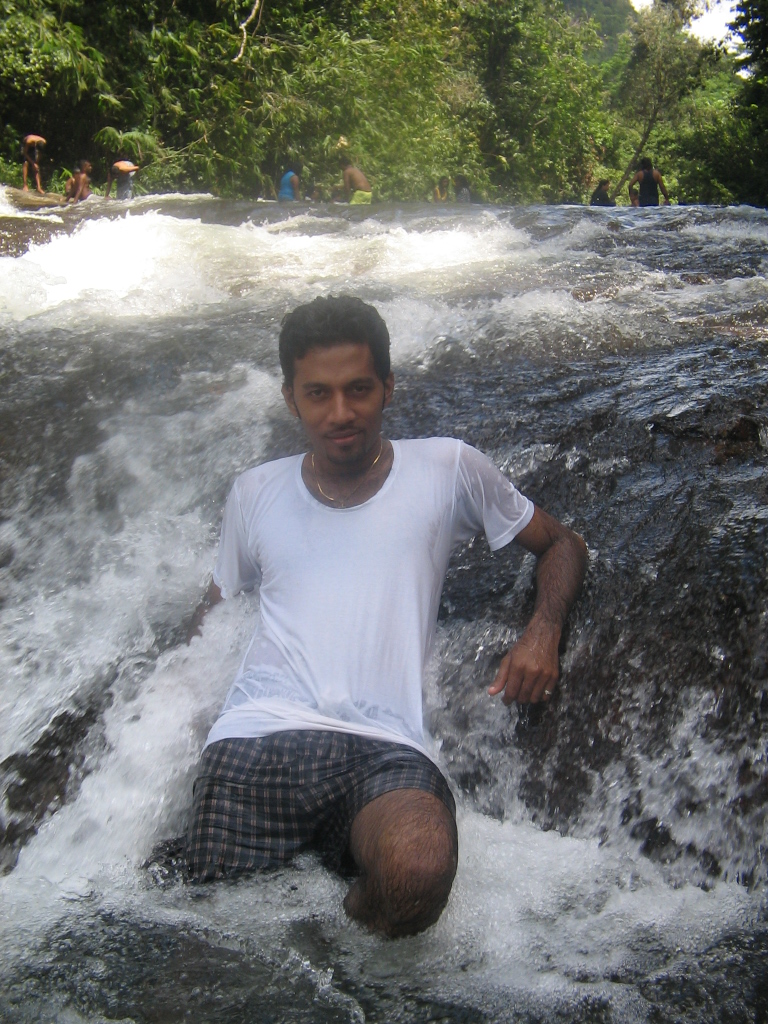Travelling to Japan was an amazing experience that I will always cherish. Ever since I was a youngster, I had always aspired to travel to Japan. I finally did it. The plane trip to Narita
Airport was so exhausting.
During our stay in Japan, we visited many places. Our first stop was Hitachi, and it is a stunning city that I will always remember. Flashing billboards, massive buildings nearly touching the sky and swarms of young people frantically hurrying through the streets.
Travelling to
Kyushu via
Hiroshima by Car was absolutely wonderful. over 1600 Km from Ibaraki to Kumamoto. It just went too hideously fast. Visiting Hiroshima was a monumental highlight for me. We went to the Hiroshima Dorm and that brought tears to my eyes. It was sad to see how such a horrific tragedy could cause so many deaths.
In this Journey I travel with my Sir, Professor and Samoa guy name Vaise Patu. We listen to the Sri Lankan songs & he like the song "Ran Tikiri Sina" very much. That was his first time that he listen to this song. After our journey he search this song vis YouTube & compose this song @ very good level. Wow creative work by Samoa Guy.
Kumamoto is the traditional city of Japan. During our time there, we viewed Kumamoto Castle, Suizenji Park and many old places. We took loads of photos and you can see it from my
Flickr site.

Shopping was a major feature of Japan. We went crazy and did masses of shopping at
Hitachi,
Mito and
Akihabara. I purchases i-pod at a very cheap price. Akihabara is a great place, & had awesome times.
A Japanese home is a wooden building that is raised slightly above the ground. Most Japanese homes are small, and the rooms are usually separated by moveable paper partitions called fusama that can be rearranged to change the size or shape of the room. When the outside screens are open, the gardens can be seen from every room in the house. Customs and traditions are very important in Japan. Upon entering a house or apartment it is customary to take off your shoes. At dinner families often kneel on cushions surrounding a low table. Most Japanese food is cooked on a small grill called a hibachi. The food is usually broiled, steamed, or fried. The basic Japanese menu consists of soup and three dishes, each cooked by a different method. Dessert is usually artistically cut fresh fruit. Chopsticks are used for picking up all food.

The homestay families and Youth hostels treated us well. We experienced exotic Japanese food. I ate the Raw Fish, Raw Horse,Wasabi and the mountains of White Rice offered to me. Singing ballads at the Karaoke was utterly bliss. I was so surprised at the singing talent within our group.
Japan is a truly special country. The people are affectionate, it is particularly clean and the transport system is efficient.

Thank you to Sri Lankan Airline for delaying flight, then we shifted to Hotel Nikko Narita for 12 hours, they provide Lunch & Dinner with classical music.
ARIGATO GOSAIMASU
 Pinnawala Elephant Orphanage(PEO)
Pinnawala Elephant Orphanage(PEO)









